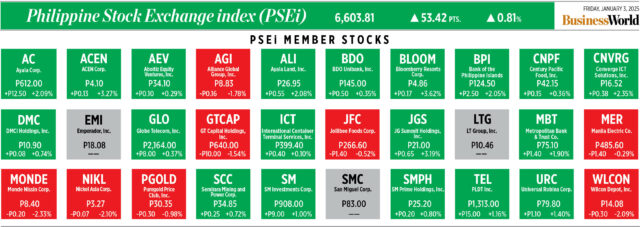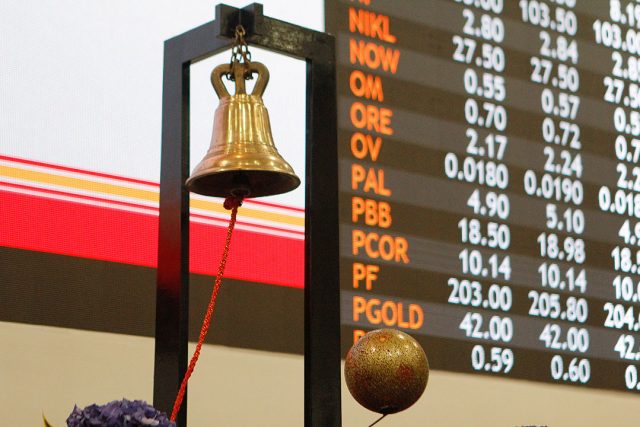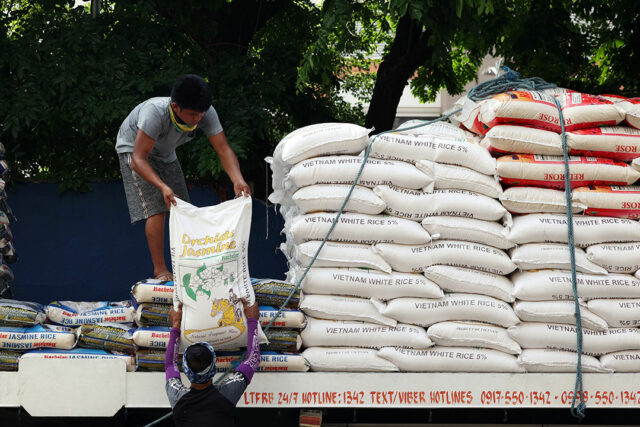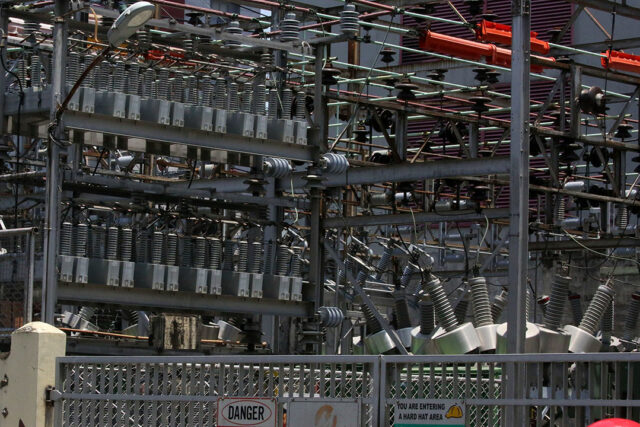By Adrian H. Halili, Reporter
AS DROUGHT and typhoons continue to disrupt rice production, the need to lower the price paid by the public for the staple grain remains pressing, with the government resorting to lowering the tariffs on imported rice to 15% from 35% until 2028. But who exactly is capturing the benefits of the lowered tariffs?
“Traders are capturing the value of cheap tariffs. They may be affected by supply issues from rice exporting countries, but once imported rice is available from these sources, traders directly and immediately benefit from lower tariffs,” Roy S. Kempis, director of the Center for Business Innovation at Angeles University, said via Viber.
However, farmers and industry groups have remained wary and cautioned about the influx of imported rice and the impact on domestic production when much of the value is cornered elsewhere in the supply chain.
Federation of Free Farmers National Manager Raul Q. Montemayor has said that the beneficiaries of lower tariffs are mainly importers, wholesalers and retailers.
In June, President Ferdinand R. Marcos, Jr. signed Executive Order (EO) No. 62 which lowered tariffs on imported rice.
“The tariff savings on rice are not being passed on to the public. All of these indicate that business sense informs many traders as well as retailers to increase prices jointly while keeping the same amount of rice in the market,” Leonardo A. Lanzona, an economics professor at the Ateneo De Manila, said via Facebook chat.
Former Agriculture Secretary William D. Dar said lower tariffs could bring down prices in the long run.
“At present although there is a little drop in rice prices, over time it will definitely lower prices eventually,” Mr. Dar said via text message.
“The importers and traders are not flooding the market, hence there is little decrease in rice prices. They are ones that benefitted most in the lowering of tariffs instead consumers. The reduction in rice prices should have been insignificant,” he added.
The Department of Agriculture has said that the tariff cuts on imported rice could lower grain prices by about P5 to P7 per kilogram at retail.
University of Asia and the Pacific Center for Food and Agribusiness Executive Director Marie Annette Galvez-Dacul said via Viber that the goal of dropping rice prices to the expected range has not been fully realized.
That range is estimated at P44-49 per kilo, assuming P34 per kilo landed cost, Ms. Dacul added.
As of Dec. 11, the average price of imported well-milled rice was P40 to P52 per kilogram, lower than the P42 to P53 range a month prior, according to the Department of Agriculture (DA).
Agriculture Secretary Francisco P. Tiu Laurel, Jr. has said that the full impact of the lowered tariffs will be felt by January.
“If international rice prices continue to ease, the peso remains stable, and tariffs stay low, we would most likely see the price of well-milled rice decline further in the coming months,” Mr. Laurel said in a recent statement.
The government’s intent in lowering tariffs has been for the savings to reflect in retail prices, thereby dampening growth in inflation, of which food makes up the largest component.
Inflation accelerated to 2.5% in November from 2.3% a month prior, amid increasing prices of vegetables, meat and fish, according to the Philippine Statistics Authority.
Food inflation at the national level accelerated to 3.5% in November from 3% a month earlier.
On the other hand, rice inflation slowed to 5.1% from 9.6% in September. However, it remained the top contributor to inflation, accounting for 17.7% to the overall consumer price index.
In response to persistently high rice prices, the DA expanded the Rice-for-All program to more outlets, with the aim of supplying well-milled rice at P40 per kilo.
The Philippines imports rice and other agricultural commodities to address gaps in domestic production and to tame food prices.
According to the US Department of Agriculture, the Philippines is the world’s top rice importer, projected to ship in about 5.4 million metric tons (MMT) of rice next year amid increasing demand and lowered tariffs.
In its December Grain: World Markets and Trade report, the USDA said 2025 imports will be driven by expectations of a smaller rice crop.
On the sidelines of a House of Representatives hearing, Mr. Laurel said the tariff regime on rice is subject to review.
“If after four months rice prices remain elevated then we would have to maintain (tariffs). The next review is in February, then after that June,” he added, noting that EO 62 provides for a review to account for possible changes in global prices and supply.
Mr. Laurel has said that the DA would propose to raise rice import tariffs once retail prices fall to about P42-P45 per kilo.
“Putting the tariff back to 35% will not lead to higher prices but will only reduce traders’ profits, and it will increase tariff collections that are supposed to go to farmers,” Mr. Montemayor added.
TARIFFS FUND LOCAL RICE PRODUCTION
The government funds rice industry modernization programs from import tariff collections, with tariffs supporting the Rice Competitiveness Enhancement Fund (RCEF).
Mr. Montemayor said that the expanded RCEF has yet to address specific problems or needs of farmers in particular locations.
“Farmers must be given the freedom to choose the variety of seed, brand of machinery, types of fertilizer and other assistance provided. We have to monitor whether these interventions actually increase yield, profitability and competitiveness,” he added.
RCEF is intended to boost rice production and support farmers through the distribution of farm machinery, seed, training, and financial assistance. It is funded by import tariffs, as authorized by the Rice Tariffication Law of 2019 or Republic Act No. 11203.
The President has signed Republic Act 12078, amending the Agricultural Tariffication Act, which tripled the annual allocation of RCEF to P30 billion and extended the fund’s term until 2031.
Mr. Laurel has said that the full impact of the increased funding for RCEF will be felt by 2026.
Weather-related occurrences continue to affect production, keeping the Philippines reliant on imports.
According to DA estimates, palay or unmilled rice production for 2024 will fall to 19.3 MMT due to the dry conditions brought by El Niño and the various typhoons during latter part of the year.
“With all the natural disasters and the potential reduction of palay production this year, we need to sustain lower tariffs. There is no alternative. If you remove this lower tariff now then you will see rice prices spiral,” Mr. Dar said.
He added that the Philippines needs long-term solutions to improve rice production.
“We need to (utilize) 1.3 million hectares of unirrigated land… in an accelerated manner. (With proper irrigation investment), we can start planting rice earlier to avoid the typhoon months,” he said.
Among the DA’s flagship projects is the construction of solar powered irrigation systems, which are projected to add about 180,000 hectares to the stock of irrigated farmland.
“Technological solutions applied in a big way will boost productivity and income of small farmers,” Mr. Dar said.

















